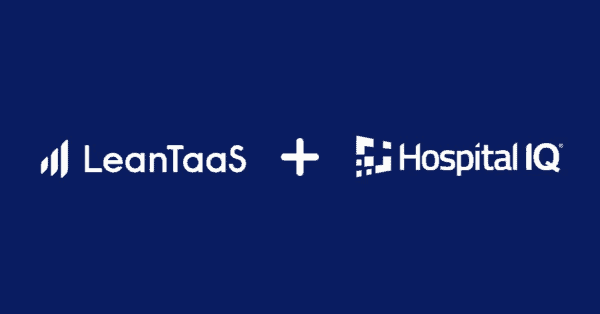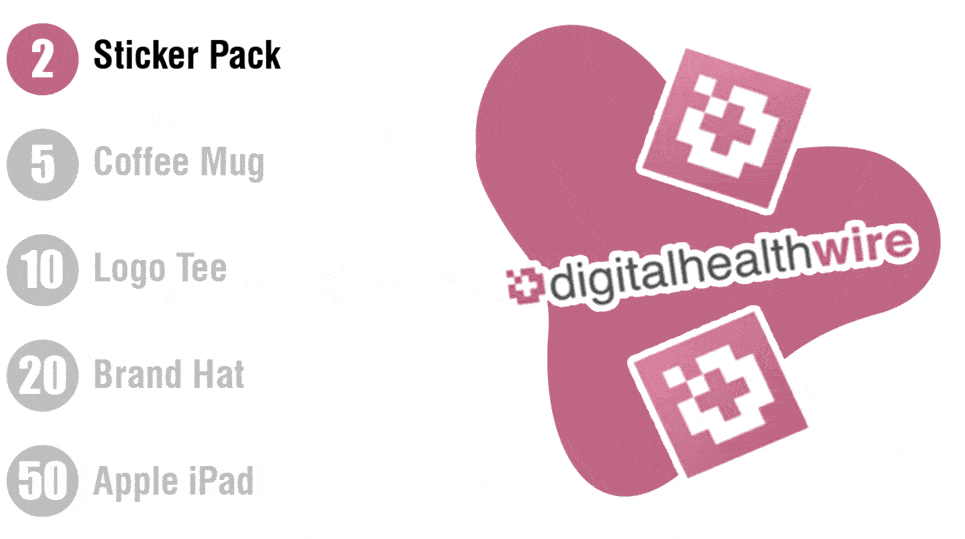|
LeanTaas Acquires Hospital IQ | Adverse Events
January 16, 2023
|
|
|

|
|
Together with
|

|
|
|
“In a complex, interconnected set of services, you have to optimize the nodes before the edges. FedEx will make the warehouse automated and productive before it worries about faster drivers.”
|
|
LeanTaaS Founder and CEO Mohan Giridharadas
|
|

|
|
It didn’t take long for 2023 to mint its first digital health unicorn, and LeanTaas is now a billion dollar company after scooping up workforce management startup Hospital IQ.
The combined entity is now one of the largest providers of hospital efficiency solutions, as health systems scramble for new ways to address both labor shortages and mounting financial pressures.
If you’re unfamiliar with LeanTaas, it provides a cloud-based SaaS platform to optimize capacity for operating rooms, infusion centers, and inpatient beds.
- While LeanTaas focuses primarily on assets such as equipment and rooms, Hospital IQ is focused on staff optimization and workforce management.
- By combining these services, LeanTaas is aiming to become the “air traffic control center” for health systems, allowing them to take advantage of predictive AI to improve resource utilization and deliver better care.
The transaction arrives just six months after Bain Capital acquired a majority stake in LeanTaas, which included a “significant” growth investment to accelerate hiring and expand its customer base.
- LeanTaaS currently serves more than 150 health systems, and it just gained ~40 more from Hospital IQ, bringing its total customer base to over 600 hospitals.
- The combined company will also benefit from Hospital IQ’s distribution partnerships with various healthcare technology providers, including Oracle Cerner, Siemens Healthineers, and Altera Digital Health (formerly part of Allscripts).
The Takeaway
At a time when everyone is trying to do more with less, LeanTaas’ promise of resource optimization and staffing efficiency has to be one of the easier pitches to try and make to health system execs. Matching supply and demand in an industry where the demand is volatile and the supply is unpredictable is a tough challenge to crack, but bringing staffing and asset optimization solutions under one roof seems like a solid way to go about it.
|




|
|
Creating an Exceptional Engagement Experience
With a surge in experience‑oriented disruptors entering the healthcare industry, patient engagement is becoming a crucial competitive differentiator. Get your copy of Nuance’s guide to delivering intelligent interactions and a better experience at every touchpoint.
|
|
unResign From Nursing with connectRN
connectRN’s new campaign unResignation Notice is helping nurses recommit to the profession they love by highlighting both the challenges they face and the reasons why they want to return. “It’s not in a nurse’s nature to quit. Something needs to change, and it’s not the nurses.” Learn more and sign your own unResignation Letter here.
|
|
- Preventable Adverse Events: A new study of 11 Massachusetts hospitals in the New England Journal of Medicine found that 7% of all inpatient hospital admissions feature at least one preventable adverse event, and that 25% of all adverse events could have been prevented. The most common type of events involved drugs (39%), surgeries (30%), nursing care (15%), and infections (12%), with the authors concluding that these episodes are still far too common and in need of standardized approaches to reporting and prevention.
- ShiftKey Scores $300M: Healthcare staffing platform startup ShiftKey raised a massive $300M funding round, bringing its valuation above $2B, and giving it plenty of capital to expand its core marketplace and surround it with new tools (e.g. scheduling, payments, education, and credentialing). The ShiftKey marketplace connects licensed healthcare workers and facilities to fill available shifts. ShiftKey’s new round raises the staffing platform funding bar following a strong 2022 that included rounds from Incredible Health ($80M), Nomad Health ($80M), and IntelyCare ($115M).
- DiMe Applied Digital Health Ethics: DiMe just rolled out a new Applied Digital Health Ethics course that uses case studies to equip participants with the skills needed to navigate the novel ethical challenges emerging through the digitization of healthcare. The course instructors include a wide ranging roster of experts from across the industry and academia, and earlybird enrollment is definitely worth looking into for pretty much everyone working in digital health.
- Most Used EHR Words: Patients using negative language in EHR messages isn’t associated with provider burnout, but using natural language processing to filter out negative words might improve the user experience, according to recent research in JAMA Network Open. After looking at over 1.4M messages across 609 physicians, UCSD researchers found that the most common negative words were “cancel,” “pain,” and “no,” with “f*ck” making an appearance at #9.
- Ardent & Cadence Team Up: Ardent Health Services entered a partnership with Cadence to implement a chronic condition RPM platform across Ardent’s operations, which include 30 hospitals and 200 sites of care in six states. Cadence’s intervention-as-needed platform is designed to improve care for patients with hypertension, congestive heart failure, and diabetes by collecting, analyzing, and responding to patients’ vitals daily as an extension of their care team.
- Northwell Pregnancy Chats: Northwell Health launched a new Pregnancy Chats tool focused on reducing maternal mortality rates by providing pregnant women with health risk assessments, blood pressure tracking, and prenatal testing. The AI-based chatbot is rolling out to Northwell’s obstetrics practices as a virtual safety net for tracking patients’ pregnancy changes, identifying any acute concerns, and triggering a care navigator to connect patients to appropriate treatments.
- Telebehavioral Health: A study in BMC Psychiatry found that telehealth and in-person behavioral healthcare have a comparable impact on patients with depression or anxiety. The researchers found that among 1.5k rural patients, there wasn’t a clinically significant difference between telehealth and in-person behavioral health treatment seen on patient questionnaires for the reduction in depression (2.8 & 2.9 points) and anxiety (2.0 & 2.4).
- Hinge Adds PT House Calls: Hinge Health took the first step of what might be a big strategic shift by launching physical therapy house calls to complement its digital MSK platform. Patients in Chicago can now use the Hinge Health platform to book 45-minute physical therapy appointments within two business days to receive mobility assessments and a review of any fall hazards within their home, with a nationwide roll out planned over the next two years.
- Paytient Raises $40.5M: Healthcare fintech startup Paytient closed $33M in Series B funding along with $7.5M in debt financing to grow its platform that offers members flexible ways to address their medical expenses without interest. Paytient works with employers, health plans, and health systems to help patients settle their medical debt, then offers a variety of repayment plans tailored to their needs.
- Transcarent + Cleveland Clinic: Transcarent entered a new partnership with The Clinic by Cleveland Clinic to provide its members with access to a network of 3.5k specialists for second opinions and treatment plan confirmations. The collaboration will be offered to Transcarent members as a no cost benefit, building on a similar partnership with Hospital for Special Surgery that connected its patients with MSK specialists.
- Public Interest in CPR Spikes: The on-field collapse of NFL player Damar Hamlin apparently drove a huge spike in interest for CPR education, with the American Heart Association seeing a 620% increase in traffic on its hands-only CPR webpages since the incident. Although survival odds aren’t great for anyone suffering cardiac arrest outside of a hospital, CPR has been shown to more than double the chance of survival.
|
|
3 Ways to Ease the Pain of Provider Credentialing
Is provider credentialing adding cost and time to your bottom line? Check out Medallion’s new blog for three ways to ease the pain of provider credentialing so that you can focus on delivering quality care.
|
|
Upgrade Your Prescribing Workflows
Whether you’re a care delivery organization or building products that have prescribers, there’s no need to build your prescribing workflow from scratch. Find out how connecting your prescribers to clinical decision support powered by real-time drug data can help provide the patient-centered insights needed for medication success.
|
|
Hyperfine Brings MRI to the ICU
“It completely changes the way we think about MRI imaging.” Take a look at this video interview with Mass General’s Chief of Neurocritical Care to see how clinicians can use Hyperfine’s Swoop Portable MRI to eliminate care disruptions in the ICU by keeping critically ill patients in the unit throughout the neuroimaging process.
|
|
|
Share Digital Health Wire
|
|
Spread the news & help us grow ⚡
|
|
Refer colleagues with your unique link and earn rewards.
|

|
|
|
|
Or copy and share your custom referral link: *|SHAREURL|*
|
|
You currently have *|REFERRALS|* referrals.
|
|
|
|
|